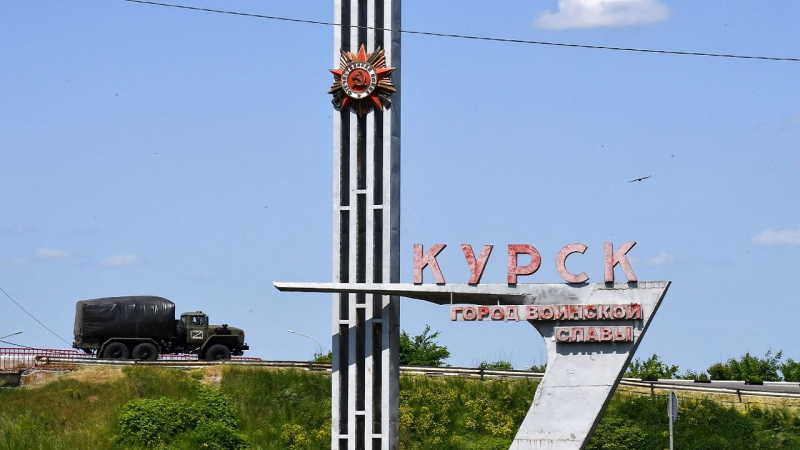
Starting from August 6, Ukrainian troops made an unexpected breakthrough of the border and entered the territory of the Kursk region of the Russian Federation.
This caused a wide resonance both in Ukrainian society and a reaction from the terrorist country of the Russian Federation. Western countries, which in the past opposed the use of Western weapons on the territory of the aggressor, did not delay their reaction.
Ukraine has not officially confirmed its involvement in the operation in the Kursk region, and representatives of the Ukrainian authorities do not comment on the course of hostilities in the region. Information about the battles themselves in the Kursk region has limited access, given the secrecy of details.
Now watching
At the same time, it is now possible to analyze what consequences the start of the Kursk operation might have, what the reaction of the Kremlin and the West might be, and what the purpose of this offensive might be. To do this, Facts ICTV talked with political scientists Igor Reiterovich and Vladimir Fesenko.
Possible target of the operation in the Kursk region
Ukraine has not officially announced what the purpose of breaking through the border in the Kursk region is. At the same time, observers and experts indicate that one of the military goals could be to pull Russian troops away from the Donetsk region, where the occupiers have had some success.
Another version is the seizure of Russian territories and then using them as “bargaining coin” during possible negotiations between Ukraine and the Russian Federation.
At the same time, as political scientist Reiterovich points out, the exchange of territories is unlikely to be the real goal of the Kursk operation.
In his opinion, the main goals of breaking through the border of the Russian Federation are, first of all, the final leveling of any talk about red lines.
— This is a signal, in particular, to our partners. Like, look, the Russians there, through the mouth of (former Russian President Dmitry, — Ed.) Medvedev, said that we will immediately react if the boot of a NATO soldier steps (on the territory of the Russian Federation, — Ed.). They believe that it’s not Ukrainians here, but all NATO members… It turned out that there are no red lines, they are smashed to pieces.
And Putin, in his statements, even pro-government Russian bloggers drew attention to this, uses the concept “situation in the Kursk region”. That is, he doesn’t even call it an invasion or seizure of these territories, he talks about the “situation”, — says Reiterovich.
In turn, political scientist Vladimir Fesenko says that in a situation if Ukrainian troops manage to maintain a bridgehead in the south of the Kursk region, then after some time, when negotiations begin, it may become the subject of an exchange or territorial exchange, for example , in the south of the Kharkov region.
— Theoretically, it is possible. But what is the problem? What is the weak point of these theories? On the one hand, it could strengthen Ukraine's negotiating positions if it manages to retain control over part of the territories where military action is currently taking place. Potentially. But the fact is that there are no negotiations now and it is unlikely that they will begin in the near future, — says the expert.
In his opinion, the majority of experts, as before, are inclined to believe that the most likely scenario for the beginning of attempts at negotiations will be the period when elections are held in the United States, since Russia does not perceive Ukraine as a subject of negotiations, and therefore any negotiations should, according to the logic of the Kremlin, take place not with Kiev, but with Washington.
Fesenko also says that the conditions for negotiations that the Kremlin previously set for Ukraine may be weakened in connection with military actions on the territory of the Russian Federation.
— What is the paradox of the situation here? When the position of one side during military actions strengthens, that side may be ready for negotiations. And even then, not always, but under certain circumstances. And the other side, whose position is weakening, is unlikely to be ready for negotiations. Both sides need to be ready for negotiations at the same time, — explains the expert.
Therefore, in conditions when Ukraine's position is strengthening, the likelihood of negotiations does not increase, but rather decreases, unless a situation arises when there is no other way out than capitulation or significant concessions. However, it is unlikely that such an option would suit Russian dictator Putin, the political scientist adds.
Separately, Vladimir Fesenko commented on the theory that the goal of the offensive on the territory of the Kursk region is the capture of the Kursk NPP. The political scientist does not rule out that this may be the real goal, but refers to the opinions of colleagues who point out that an attempt to take control of the Kursk NPP may become a pretext for Putin to use tactical nuclear weapons against Ukraine.
Russia's response to the Kursk breakthrough
After the start of the operation in the Kursk region, the Kremlin's reaction was slow and indecisive, observers point out. Only on the second day of hostilities in the Kursk region did Putin comment on the situation, calling the breakthrough of the Armed Forces of Ukraine a large-scale provocation. This move was noticed not only in the West, but also among the Russian military community, which began to criticize its leader for such moderation in his actions.
— Putin reacted with restraint. Even very restraint. And I think that this is what had an impact. If, for example, Putin had started threatening, making some tough, harsh statements, then perhaps the West would have reacted, let's say, not so positively. Perhaps they would have called for an end to military actions and so on. Again, a story about “escalation of war” could have arisen. This is something that the West, especially the States, is seriously afraid of, — says Fesenko.
In his opinion, the restrained reaction of the Russian dictator, for now, is explained by two of the most popular versions:
Firstly, Putin, judging by the information he is given, does not take these events seriously.
— He does not believe that they will lead to any negative, much less catastrophic consequences for Russia, that this is a temporary episode. And his military advisers reassure him that all this will be quickly resolved in a few days. Here is one explanation, — says the political scientist.
The second explanation for such a reaction of the head of the Kremlin is that Putin “does not want to change the format of the war” and he himself does not want to go for an open escalation, since this is risky both from the domestic political point of view (declaration of mobilization or war) and from the possible external consequences.
— There are risks of growing internal tensions, and it seems to me that the Kremlin is somewhat afraid of this. They want to control the situation. They do not want the scale of this war to grow and affect a large part of Russian society. If it affects border regions, it is not so scary, — explains Fesenko.
ICTV Live Related materials Explosions heard in Kursk: after Russian air defense work, a multi-story building is burning
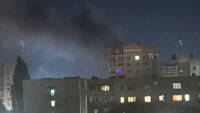
Explosions heard in Kyiv: air defense is working
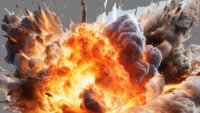
Ukraine Air Raid Alert Map Online: Where There Is a Missile Strike Threat
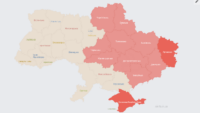
A stunning maneuver and humiliation for the Russian army: what the media wrote about the offensive in Kursk
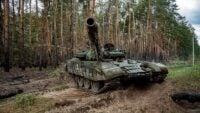
Ukraine is proving that it really knows how to return justice and put pressure on the aggressor — Zelensky
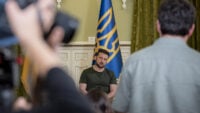
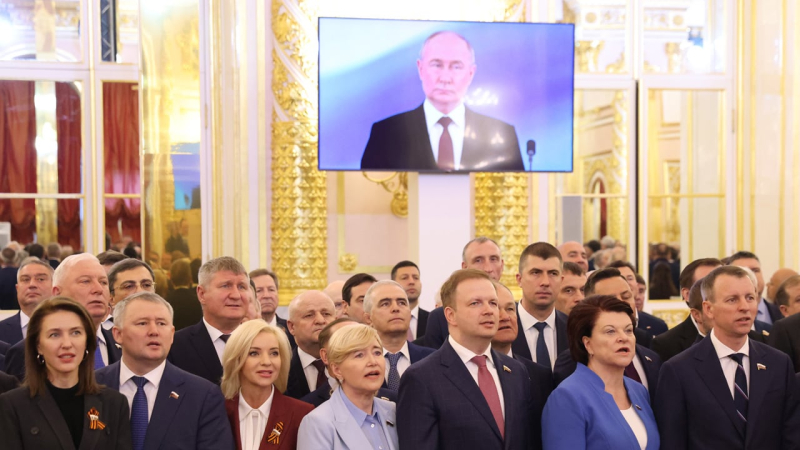
Photo: Getty Images
As for the external consequences, if, for example, tactical nuclear weapons are used, relations with the West will deteriorate significantly.
— And it is still unknown how exactly they will deteriorate. Then the West will definitely be more active in helping Ukraine, and will definitely lift restrictions on strikes on Russian territory. And, most likely, this will mean new, tougher measures against Russia, — he says.
He recalled that the topic of using nuclear weapons was discussed between the United States and Russia back in late 2022, and then the Kremlin was warned about the inadmissibility of such actions.
— And, apparently, then they said something quite specific about what this could lead to. And Putin wants to negotiate. On his own terms, but he wants to negotiate. And the fact that he reacted with restraint is evidence that he wants to talk, — says the political scientist.
The West's reaction to the operation in the Kursk region
In the past, when representatives of the Russian Volunteer Corps (RVC) raided Russian territory and Western weapons were noticed on them, or Ukraine shot down Russian aircraft with Western air defense, Ukraine's European partners were outraged that official Kyiv was not listening to the West's conditions.
Now that Ukrainian troops have entered the territory of the Kursk region of the Russian Federation and are openly using Western equipment and weapons, Europe and the United States do not seem to be very concerned about such use of weapons.
Moreover, White House spokesman John Kirby, commenting on the fighting in Kursk, said that the Ukrainian Armed Forces are not violating restrictions on attacks with American weapons deep into Russia.
According to political scientist Reiterovich, the reason for such changes is obvious: “the world loves strong”.
— Ukraine demonstrated strength. How to react to this? If it had gone wrong somehow, there would have been a different reaction. And since it all went relatively well, and clearly already has very big consequences, positive for us and negative for the Russians, the world simply has no other choice than to react to it as if it were some positive thing. Although they may not share them and would not want them to happen, — explains the expert.
This is how Israel should act, for example. They killed this terrorist there, so what will the world say about this? They will say, well, maybe it’s not good, but in fact it’s good. That's exactly the case here.
According to him, there is a parallel in this with the actions of Israel, which destroyed the leader of Hamas and there was a corresponding reaction in the world.
In turn, political scientist Fesenko points to another aspect: the West’s reaction took place after President Vladimir Putin spoke and showed himself.
Accordingly, the West saw that Putin was reacting quite restrainedly, and, therefore, he was not ready for escalation.
— And this gave them a little courage. They are now considering the current situation in the context of strengthening Ukraine's position. That, they say, well, if so, then Ukraine has the right to defend itself in this way. These are important things. The fact that it is publicly recognized that we can defend ourselves in this way by conducting military action on the territory of the Russian Federation, the political scientist explains.
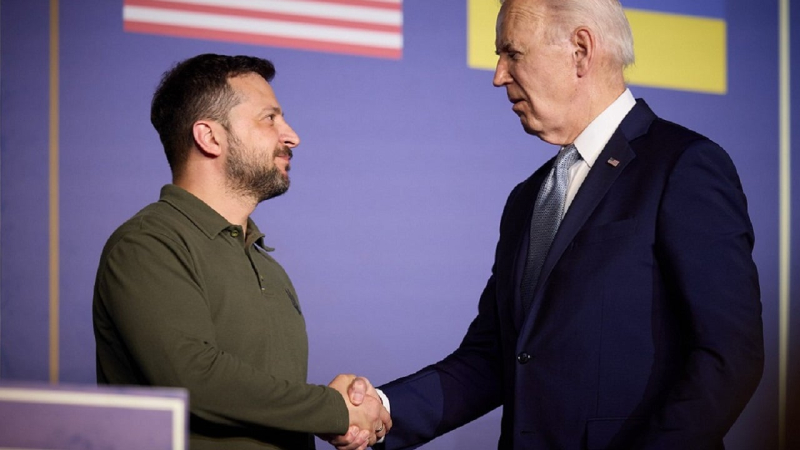
Photo: OPU
In addition, the current situation in the West is seen as an opportunity to use it to strengthen negotiating positions in future negotiations in the future.
— On the one hand, they relaxed a little after Russia's reaction, Putin's restrained reaction. But on the other hand, they view the current situation as one that could strengthen Ukraine's position in future negotiations, — he says.
Political consequences of the Kursk operation
Regardless of the military situation, a separate question remains what the political consequences of breaking through the border in the Kursk region will be for Ukraine and the Russian Federation.
According to Reiterovich, first of all, the operation politically neutralized the risks and concerns regarding the red lines.
— I won't be surprised if in the near future we receive official or unofficial permission, for example, to use the same ATACMS for strikes deep into Russia, at airfields. Because the world, the EU, the US, have seen very well that Russia can only laugh, but cannot do anything concrete, — he explains.
Another political consequence is the perception of Putin in the eyes of the domestic audience of the Russian Federation.
— They still maintain faith in the good tsar, and in the fact that it is simply the local authorities who are not doing anything. This is evident from their messages and words: “Putin, come, help”… But they are gradually beginning to see the light. Therefore, sooner or later, although they are not very smart, they will be able to put 2+2 together and understand that this is a question not only for the local authorities, — he explains.
In addition, at the all-Russian level, the elites of certain regions are realizing that in the event of problems, they will have to solve them on their own, without the Kremlin's participation.
— And the central government says hold on: the situation is difficult, but hold on, everything will be fine, we will give you 10 thousand rubles. By the way, this is about 4.5 thousand hryvnia. This is about nothing, — he explains the situation with payments for refugees from the Kursk region who could have lost their homes due to hostilities.
In turn, another question arose for the Russian law enforcement agencies, namely — on the development of terrorist defense in the border regions of the Russian Federation. billions were previously spent on it. The same is with fortifications, on which, according to Russian media, 15 billion rubles were spent.
— Therefore, in this context, the political consequences will be a blow to the institutional capacity of the Russian government, since they have once again demonstrated their resemblance to a colossus with feet of clay, — he says.
At the very end, we should talk about the topic of the gas pipeline in Sudzhi, where hostilities had recently taken place. The first days of fighting in the Kursk region led to the Kremlin losing control of the Sudzha gas measuring station (GIS), which is the only entry point into Ukraine’s gas transportation system. It is through this point that Russian gas is supplied in transit to Europe.
However, as Reiterovich explains, the story about GIS Sudzha is rather symbolic.
— For Ukraine, it is not a question of cutting off the gas. We could have done all this on our territory before, or, for example, by simply shooting this gas pipeline from our territory, — he explains.
Therefore, the symbolic meaning of the pipeline is more important here, since by this Ukraine again demonstrates that it has the appropriate ability to influence, among other things, the export of Russian gas.

